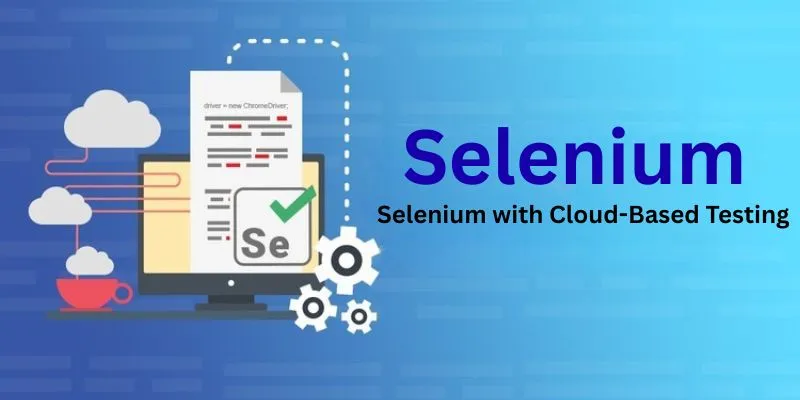
Delivering high-quality web applications quickly is essential for staying ahead in a competitive market. As apps grow more complex, QA teams face the tough task of making sure everything works smoothly on different browsers, devices, and operating systems. Using Selenium with cloud-based testing platforms helps meet these challenges by providing scalable and reliable automation testing. For professionals looking to gain hands-on expertise in this area, enrolling in a Selenium Course in Gurgaon at FITA Academy provides practical training, real-time projects, and expert guidance on integrating Selenium with cloud platforms to achieve scalable and robust test automation.
This blog explores how Selenium can be effectively integrated with cloud-based testing platforms, the benefits of this approach, and practical strategies to achieve efficient, high-quality testing at scale.
Understanding Selenium and Its Role in Automation
A well-liked open-source program for web application testing automation is called Selenium. It enables testers to write adaptable and maintainable test scripts by supporting a variety of programming languages, such as Java, Python, C#, Ruby, and JavaScript. The main component, Selenium WebDriver, makes it possible to automate browser operations like button clicks, form filling, page navigation, and web element validation.
Although Selenium works very well for local testing, infrastructure constraints can make it difficult to run tests on several browsers and operating systems at once. Managing multiple local test environments is costly and time-consuming. Learn scalable solutions in a Selenium Course in Ahmedabad.
The Need for Cloud-Based Testing Platforms
Cloud-based testing platforms such as BrowserStack, Sauce Labs, LambdaTest, and CrossBrowserTesting enable organizations to run Selenium tests using a variety of devices, browsers, and operating systems, all hosted in the cloud. These platforms provide ready-to-use virtual machines and mobile devices, eliminating the need for organizations to maintain expensive local test infrastructure.
Key advantages of cloud-based testing platforms include:
- Scalability: Run hundreds or even thousands of tests in parallel across multiple browsers and devices.
- Flexibility: Access a wide variety of browser versions, operating systems, and mobile devices.
- Cost-Effectiveness: Reduce infrastructure costs by using cloud resources instead of maintaining in-house devices.
- Faster Test Execution: Parallel testing significantly shortens test cycles, allowing faster feedback.
- Continuous Integration Compatibility: Easily integrate with CI/CD tools like Jenkins, GitHub Actions, or Bamboo for automated test execution.
How to Integrate Selenium with Cloud-Based Testing Platforms
Integrating Selenium with a cloud-based testing platform is simple and involves a few essential steps. Gain hands-on experience with this process by enrolling in a Selenium Course in Cochin.
- Choose a Cloud Platform: Select a platform that meets your testing needs, whether it’s for web, mobile, or cross-browser testing.
- Set Up Remote WebDriver: Instead of running tests on a local browser, configure Selenium WebDriver to execute tests on the cloud platform’s remote servers. This involves providing credentials, selecting browser versions, and specifying operating systems.
- Write Test Scripts: Create Selenium scripts using your preferred programming language. Scripts remain largely the same as local tests, but the WebDriver connects to the cloud platform.
- Execute Tests in Parallel: Configure your tests to run simultaneously across multiple browsers, devices, and operating systems to achieve maximum coverage.
- Monitor and Analyze Results: Cloud platforms provide detailed test reports, including screenshots, videos, and logs, which help in identifying and debugging failures efficiently.
Best Practices for Scalable Selenium Testing in the Cloud
To get the most out of Selenium and cloud-based testing platforms, follow these best practices:
- Use Parallel Execution: Maximize scalability by running multiple tests simultaneously on different browsers and devices with our Selenium Course in Dindigul.
- Implement a Robust Test Automation Framework: Use Page Object Model (POM) or hybrid frameworks to create maintainable and reusable scripts.
- Leverage CI/CD Pipelines: Integrate Selenium tests with Jenkins, GitHub Actions, or other CI/CD tools to automatically trigger tests on every code commit.
- Handle Dynamic Elements Effectively: Use explicit waits, proper locators, and stable selectors to ensure tests work across multiple environments.
- Maintain Test Data Externally: Store test data in Excel, JSON, or databases to make tests flexible and scalable.
- Monitor Resource Usage: Be mindful of cloud credits or usage limits, especially when running large-scale parallel tests.
Benefits of Using Selenium with Cloud-Based Platforms
By combining Selenium with cloud-based testing platforms, organizations and testers can enjoy several benefits:
- Faster Time-to-Market: Parallel and cross-browser testing reduces testing cycles, enabling quicker releases.
- Improved Test Coverage: Test across a wide variety of browsers, devices, and operating systems, ensuring a consistent user experience.
- Cost Savings: Reduce the need for in-house test infrastructure and maintenance.
- Enhanced Collaboration: Teams can access cloud platforms from anywhere, supporting remote testing and collaboration.
- Better Debugging and Reporting: Cloud platforms provide rich logs, screenshots, and videos for faster issue resolution.
As web applications become increasingly complex, testing at scale is no longer optional it’s essential. Selenium, when combined with cloud-based testing platforms, provides a powerful, scalable, and cost-effective solution for automated web testing. By following best practices, integrating with CI/CD pipelines, and leveraging cloud resources, QA teams can achieve faster feedback cycles, improved test coverage, and higher-quality software releases. For professionals looking to gain hands-on expertise, enrolling in a Selenium Course in Jaipur that covers cloud-based testing and parallel execution can provide practical skills, real-time project experience, and guidance to excel in modern automation testing environments.
Also Check:
